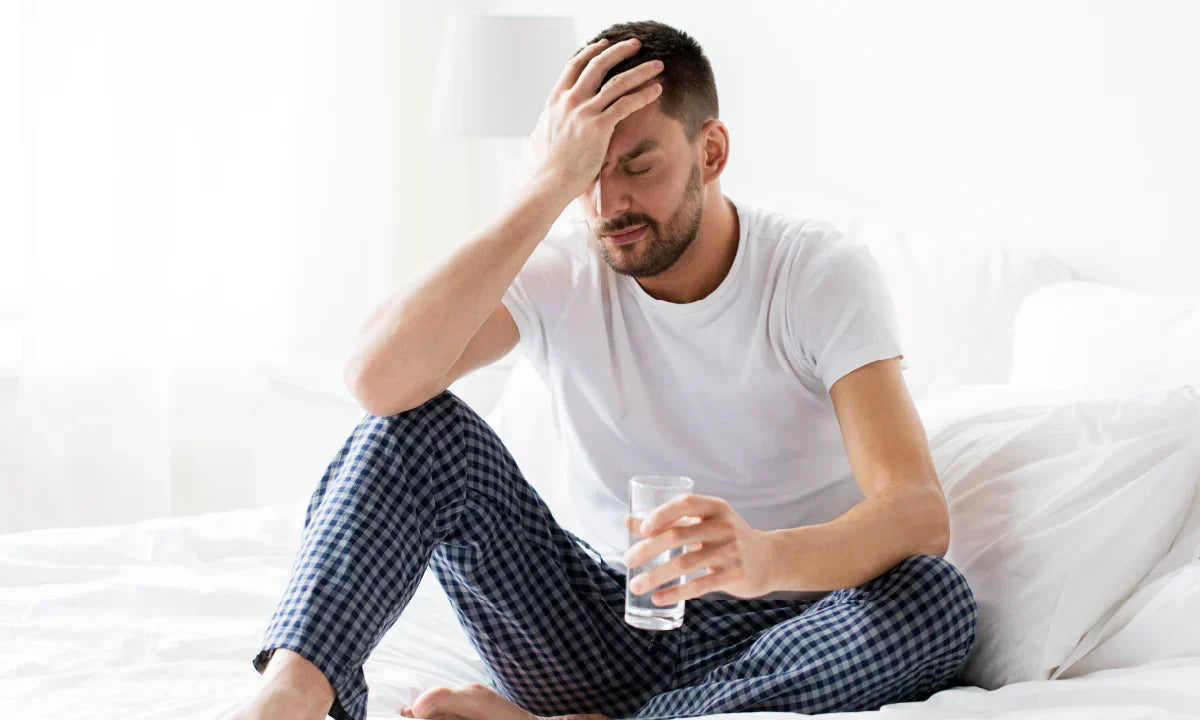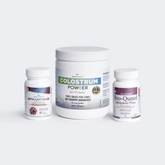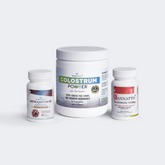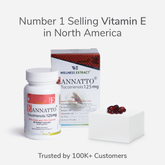How to Sober Up Fast: Science-Based Methods & Home Remedies
Estimated Reading Time: 7 minutes
|Had a few too many and need to pull yourself together: fast? Whether you’ve got work in the morning, brunch with the in-laws, or just want to stop feeling like a walking headache, sobering up quickly becomes priority number one. The truth? There’s no instant fix, but there are smart, science-backed ways to help your body recover quicker.
In this blog, we’ll break down what actually works when it comes to how to sober up fast; and what’s just wishful thinking. Let’s get you feeling human again.
How Long Does Alcohol Stay in Your System?
Before we jump to fixes, here’s the reality check:
-
Your body metabolizes alcohol at its own pace; about one standard drink per hour.
-
No hack, pill, or potion can speed up your liver’s process.
-
You may feel better, but sobriety means the alcohol is gone; not just the symptoms. That means your blood alcohol concentration (BAC) must be 0.00%. Until then, alcohol is still in your system, affecting your body and brain.
So, if you’re asking “how to sober up fast”, what you really want is to feel less drunk, more alert, and in control; and that we can support.
Fun Fact Break:
Alcohol affects women more strongly than men, even at the same weight. Why? Women often have less of the enzyme (alcohol dehydrogenase) that breaks down booze in the stomach.
What “Sobering Up” Actually Means
Let’s clear something up: sobering up doesn’t mean “cured.” It means:
-
Restoring focus
-
Rehydrating your system
-
Easing nausea, fatigue, or headaches
-
Getting your body back to baseline
So, how do we help the body recover safely?
Real Talk
Only time sober you up. But you can do a lot to feel more functional while you wait it out.
Smart (and Safe) Ways to Feel Sober Faster
Here’s what you can do that may support your system and ease the ride:
-
Water, Water, and More Water
Alcohol is a diuretic, which means it dehydrates your body. That dry mouth and pounding head? Mostly due to dehydration.
What to do:
-
Drink water steadily.
-
Oral rehydration salts or electrolyte drinks like ORS, Gatorade, or coconut water can help more than plain water.
Do You Know? Your body loses about four times more fluid than the alcohol you drink. That’s why you're waking up feeling like a dry sponge.
-
Eat Something (Even If It’s 2 AM)
Food doesn’t “soak up” alcohol, but it can stabilize blood sugar and give your liver the fuel it needs to metabolize better.
Go for:
-
Complex carbs: brown bread, rice, oats.
-
Protein: eggs, paneer, or chicken.
-
Bananas or avocados for potassium.
Skip greasy, super-fatty meals; they may make nausea worse.
Myth Buster: Spicy food won’t sober you up. It might just add stomach trouble to the mix.
Also Read: 10 Highly Inflammatory Foods to Avoid & 10 Anti-Inflammatory Foods to Include in Your Diet
-
Take a Walk (Yes, Even a Wobbly One)
You don’t need to hit the gym (please don’t), but a 10-minute walk outside can help:
-
Increase alertness
-
Get oxygen flowing
-
Ease the “spinny room” effect
But no driving, running, or exercise machines. You’re still under the influence.
Myth Buster: You can’t "sweat out" alcohol. It leaves your body through the liver, not your sweat glands.
-
Sleep = Your Real Superpower
Sleep is your body’s best tool for recovery. Even a 20-minute nap can help bring your nervous system out of chaos mode. In fact, your liver also works best when you’re resting.
If you can’t sleep yet:
-
Dim the lights
-
Hydrate
-
Lie still
-
Use a sleep mask or earplugs if needed.
Pro tip: Sleep with your head elevated if you're feeling nauseous.
-
Take Deep Breaths (Literally)
Alcohol messes with your nervous system. Deep, slow breathing helps shift your body from “party panic” to recovery mode.
Try this: Breathe in for 4 seconds, hold for 4 seconds, and exhale for 6 seconds. Repeat 5 times. Simple. Grounding. Actually works.
-
Caffeine Tricks You Into Feeling Fine
Coffee may perk you up, but it won’t sober you up. In fact, it can make things worse:
-
It dehydrates you further
-
It tricks you into thinking you’re more sober than you are
-
It messes with your sleep (which you really need)
Keep it herbal: ginger tea or peppermint tea = better choice.
-
Cold Showers – Not What You Think
A cold shower might wake you up, but it won’t change your blood alcohol content (BAC).
Good for feeling fresher but not for actually removing alcohol from your system.
Fun Fact: In some cultures, people believe standing on one foot and breathing deeply sobers you up. It doesn’t. But hey, it makes for great party footage.
-
Vitamin B and C
Alcohol drains your body of essential vitamins. Replacing those might help you feel normal faster.
Try this:
-
Take a B-complex tablet.
-
Fresh orange juice or lemonade with salt and sugar.
Research Says: Vitamin B1 (thiamine) is especially important in heavy drinkers to support brain and nerve function.
What Not to Do When Trying to Sober Up
Let’s cut through the noise.
|
What People Try |
Why It Doesn't Work |
|
Vomiting (on purpose) |
Won’t remove alcohol already in your bloodstream |
|
Drinking more alcohol |
Makes things worse, not better |
|
Energy drinks |
Increases alertness but not sobriety |
|
OTC hangover pills |
May support symptoms, but not backed for sobering up fast |
Important Note for Safety
Do not drive, operate machinery, or make important decisions while trying to “sober up.” You may feel fine; but your BAC may still be high.
When to Seek Help
Sometimes it’s more than just a hangover.
-
Trouble breathing
-
Seizures
-
Vomiting that won’t stop
-
Cold, pale, or blue skin (possible alcohol poisoning)
These could be signs of alcohol poisoning. In such cases, call for medical help immediately. It’s better to be safe.
Real Talk: Alcohol poisoning isn’t about how much someone drank, but how their body handles it.
Final Thought
The truth is, the best way to sober up fast is to avoid getting too far gone in the first place. That might sound boring; but hangovers, regrets, and mystery bruises aren't exactly thrilling either.
So next time you're headed out and wondering how to sober up fast, think about your future self. They'll thank you for the water breaks, the snack, and the smart choices.
Until then; hydrate, rest, and skip the internet myths.
Key Takeaways
-
You can’t speed up alcohol metabolism; only your liver can do that, at about one drink per hour. So, when it comes to how to sober up fast, time is the only true solution.
-
Hydration, food, and sleep help reduce symptoms and improve how you feel.
-
Avoid unsafe “cures” like caffeine, cold showers, or taking random OTC pills.
-
Know when it’s time to call a doctor; especially in emergencies
-
Your best bet? Plan ahead and drink responsibly.
Disclaimer: This blog is for informational purposes only and does not provide medical advice. Always consult a healthcare professional before making changes to your diet or health routine. Individual results may vary.
References
-
California Department of Alcoholic Beverage Control. Alcohol facts. California Department of Alcoholic Beverage Control. Published 2025. https://www.abc.ca.gov/education/licensee-education/alcohol-facts/ (Accessed on: 19/06/2025)
-
Government of South Australia. Blood Alcohol Concentration (BAC) and the effects of alcohol. www.sahealth.sa.gov.au. Published April 6, 2022. https://www.sahealth.sa.gov.au/wps/wcm/connect/public+content/sa+health+internet/conditions/alcohol/blood+alcohol+concentration+bac+and+the+effects+of+alcohol (Accessed on: 19/06/2025)
-
Maddur H, Shah V. Alcohol and Liver Function in Women. Alcohol Research: Current Reviews. 2020;40(2). https://doi.org/10.35946/arcr.v40.2.10 (Accessed on: 19/06/2025)
-
National Institute on Alcohol Abuse and Alcoholism. The Truth About Holiday Spirits. National Institute on Alcohol Abuse and Alcoholism. Published April 25, 2019. https://www.niaaa.nih.gov/publications/brochures-and-fact-sheets/truth-about-holiday-spirits (Accessed on: 19/06/2025)
-
Mackus M, Stock AK, Garssen J, Scholey A, Verster JC. Alcohol hangover versus dehydration revisited: The effect of drinking water to prevent or alleviate the alcohol hangover. Alcohol. 2024;121. https://doi.org/10.1016/j.alcohol.2024.07.006 (Accessed on: 19/06/2025)
-
American Chemical Society. Chemistry and Anatomy of Hangover. https://www.acs.org/content/dam/acsorg/events/popular-chemistry/Slides/2014-01-16-hangover.pdf (Accessed on: 19/06/2025)
-
Ramsbottom A, van Schalkwyk MCI, Carters-White L, Benylles Y, Petticrew M. Food as harm reduction during a drinking session: reducing the harm or normalising harmful use of alcohol? A qualitative comparative analysis of alcohol industry and non-alcohol industry-funded guidance. Harm Reduction Journal. (2022);19(1). https://doi.org/10.1186/s12954-022-00648-y (Accessed on: 19/06/2025)
-
Sandoval C, Farías J, Zamorano M, Herrera C. Vitamin Supplements as a Nutritional Strategy against Chronic Alcohol Consumption? An Updated Review. Antioxidants. (2022);11(3):564. https://doi.org/10.3390/antiox11030564 (Accessed on: 19/06/2025)
-
Listabarth S, Vyssoki B, Marculescu R, et al. Can thiamine substitution restore cognitive function in alcohol use disorder? Alcohol and Alcoholism.( 2023). https://doi.org/10.1093/alcalc/agad017 (Accessed on: 19/06/2025)



































